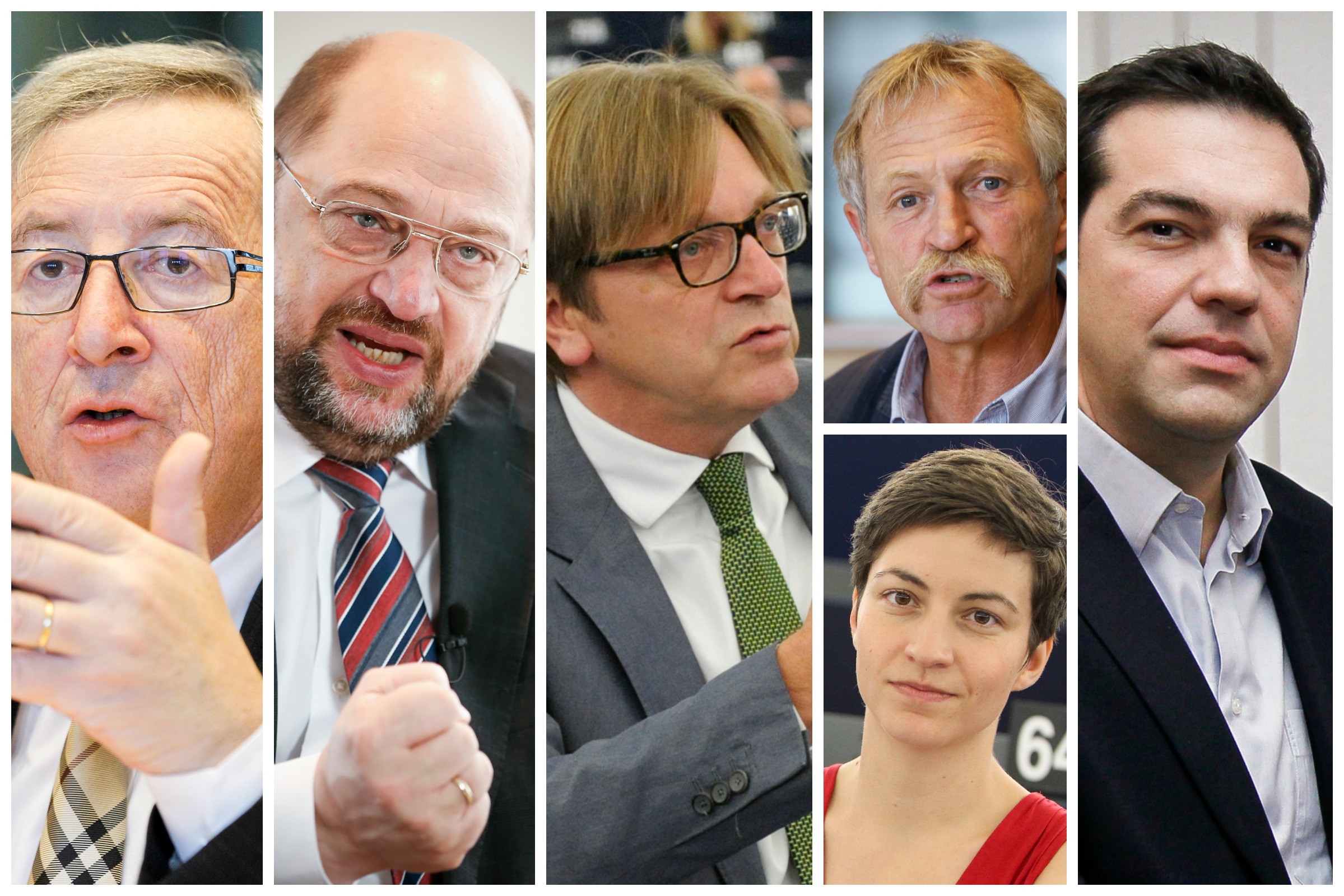Mladí ľudia sa dožadujú, aby voľby prezidenta Európskej komisie zostali demokratické!
Toto vyhlásenie politických mládežníckych organizácií zaznelo ako reakcia na diskusie hláv členských štátov EÚ, uvažujúce nad zablokovaním procesu výberu Spitzenkandidaten na prezidenta Európskej komisie.
Vo voľbách v roku 2014 voliči po prvýkrát mohli vyjadriť svoj názor, ktorý z kandidátov, predložených piatimi hlavnými európskymi politickými stránami, by mal byť v čele Európskej komisie. Títo top kandidáti sú tiež známi pod nemeckým termínom “Spitzenkandidaten”. Hlavné európske politické mládežnícke organizácie v zmienených správach jednoznačne obhajovali tento demokratický proces, ktorý však takmer všetky hlavy členských štátov a vlád EÚ plánujú vrátiť k pôvodnému systému, pri ktorom sa rozhodovalo o prezidentovi za zatvorenými dverami.
Európska Únia čelí výzvam na viacerých úrovniach, a zreteľná vedúca pozícia EÚ je bezpodmienečná, ak má Európa konať súdržne pri riešení jej existenčných problémov. Pre budúcnosť silnej Európy je preto nevyhnutná snaha o čo najväčšiu demokratickosť a transparenciu. Proces európskych volieb určujúci ďalšieho prezidenta Komisie bol vnímaný ako obrovský krok vpred v posilnení právomoci občanov na voľbe smerovania EÚ, pridaním transparentnosti a demokratickej legitimity do tohto procesu. Práve anulácia tohto systému by bol regresívny krok proti demokratickému, dlhodobému trendu, ktorý v EÚ pretrváva už zopár dekád. Hlavne teraz, v čase, keď občania necítia dostatok legitimity zo strany EÚ.
Proces volenia Spitzenkandidaten dával európskym lídrom ľudskú tvár, pomáhal pootvárať túto súčasť priamej demokracie EÚ, ktorá na občanov a hlavne mladých ľudí, pôsobí často veľmi izolovane až vzdialene. V roku 2014, Európske mládežnícke fórum spolu s Univerzitou a mestom Maastricht a Euronews zorganizovali vôbec prvú televízne vysielanú debatu s vybranými Spitzenkandidaten. Táto debata, vysielaná naživo miliónom divákom, sa zameriavala najmä na problémy mladých ľudí. V priebehu volieb, proces výberu Spitzenkandidaten prispelo k väčšiemu mediálnemu pokrytiu, v niektorých členských štátov dokonca dopomohlo zastaviť tendenciu neustále klesajúcich percent účasti na voľbách. Krok späť k starému systému by preto znamenal risk ďalšieho odcudzenia voličov, z veľkej časti mladých voličov, ktorí sú často skeptickí voči tradičnému politickému systému. EÚ musí byť viac, nie menej demokratická, aby si zaistila popularitu a podporu.
Podpora nepretržitého trendu otvárania európskej demokracie je v záujme našich národných lídrov, práve z tohto dôvodu žiadame, aby nasledovali nedávne výzvy z Európskeho parlamentu na zabezpečenie a zlepšenie procesu výberu Spitzenkandidaten.
Koniec koncov, nie je lepšie, aby jedno z najkľúčovejších vedúcich pozícií EÚ bolo rozhodnuté na základe názorov 500 miliónov občanov, alebo len na základe 28 hláv štátu?
YFJ – European Youth Forum
YEPP – Youth of European People’s Party
DEMYC- Democrat Youth Community of Europe
FYEG – Federation of Young European Greens
EFAY – European Free Alliance Youth
LYMEC – European Liberal Youth
JEF – Young European Federalists
IFLRY – International Federation of Liberal Youth
IUSY – International Union of Socialist Youth
YES – Young European Socialists
YDE – Young Democrats for Europe
AEGEE-Europe – European Students’ Forum


